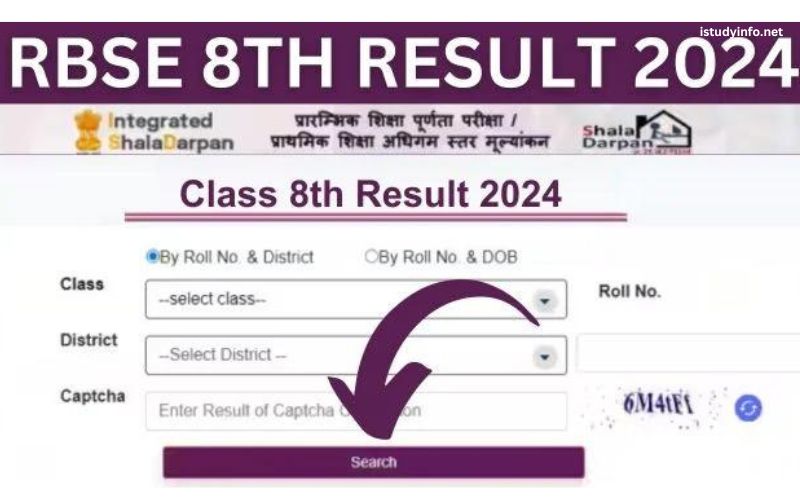The Role of Roll Numbers in Education
- Identification and Administration: Roll numbers are unique numerical identifiers assigned to students at the beginning of the academic year. They help in maintaining a structured record of students, making administrative tasks like attendance, record-keeping, and performance tracking efficient and error-free. In a typical classroom setting, a roll number system helps teachers and school administrators quickly locate and manage student information.
- Examination and Evaluation: During examinations, roll numbers are used to ensure the anonymity of students. This practice helps maintain fairness and objectivity in the evaluation process. The use of roll numbers prevents bias and ensures that the assessment is based solely on the student’s performance.
- Tracking Academic Progress: Roll numbers are also crucial for tracking the academic progress of students throughout the year. Schools use these numbers to compile data on students’ performance in various subjects, which helps in identifying strengths and areas that need improvement.
- Record Maintenance: Schools maintain extensive records of students’ academic history, including grades, attendance, disciplinary actions, and more. Roll numbers simplify the retrieval and management of these records, ensuring that information is organized and accessible when needed.
Roll Number Allocation in 2023
The process of allocating roll numbers has evolved with the advent of technology, making it more streamlined and efficient. Here is an overview of the roll number allocation process for 8th-grade students in 2023:
- Registration: At the start of the academic year, students are required to register for their classes. This registration process involves submitting personal details, previous academic records, and other necessary information. Once registered, students are assigned a unique roll number that will be used for all administrative and academic purposes throughout the year.
- Digital Platforms: Many schools have adopted digital platforms for student registration and roll number allocation. These platforms reduce the chances of errors and make the process faster. Students and parents can access these platforms online to complete the registration process, after which the roll numbers are generated automatically by the system.
- Transparency and Communication: Schools ensure that the roll number allocation process is transparent and that students and parents are informed about their roll numbers in a timely manner. Notifications are often sent via email or SMS, and the information is also made available on the school’s online portal.
Challenges and Solutions
Despite the advancements in technology, there are still some challenges associated with the roll number allocation process. However, these challenges can be effectively managed with appropriate measures:
- Data Accuracy: Ensuring the accuracy of student data during registration is crucial. Inaccurate data can lead to issues with roll number allocation and subsequent administrative processes. Schools should implement verification steps to confirm the accuracy of the information provided by students and parents.
- Technical Glitches: Digital platforms, while efficient, are not immune to technical glitches. Schools should have a robust IT infrastructure in place and provide technical support to address any issues that arise during the roll number allocation process.
- Communication Gaps: Clear communication between the school administration, students, and parents is essential to avoid confusion regarding roll numbers. Schools should use multiple communication channels to ensure that all stakeholders are informed promptly and accurately.
The Impact of Roll Numbers on Students
Roll numbers have a significant impact on students’ academic and personal lives. Understanding this impact can help educators and parents support students more effectively:
- Sense of Identity: For many students, their roll number becomes a part of their academic identity. It is used in various school-related activities and events, contributing to their sense of belonging within the school community.
- Accountability: Roll numbers foster a sense of accountability among students. Knowing that their performance and attendance are tracked using this unique identifier encourages students to take their responsibilities seriously.
- Organization Skills: Managing their roll number and related documents helps students develop organizational skills. They learn to keep track of important information and understand the importance of maintaining their academic records.
The Future of Roll Number Systems
As technology continues to advance, the roll number system is likely to evolve further, bringing about several potential changes:
- Integration with Advanced Technologies: Future roll number systems may integrate with advanced technologies such as artificial intelligence and blockchain. These technologies can enhance the security and accuracy of student records, making the entire process more reliable.
- Personalized Learning: Roll numbers could be used to facilitate personalized learning experiences for students. By linking roll numbers with comprehensive student profiles, educators can tailor their teaching methods to suit individual learning needs and preferences.
- Enhanced Data Analytics: Schools could leverage data analytics to gain deeper insights into student performance and behavior. Roll numbers would play a crucial role in collecting and analyzing this data, helping educators make informed decisions to improve educational outcomes.
Conclusion
The 8th class roll number system in 2023 remains a cornerstone of the educational administration. Its importance in identification, examination, record maintenance, and overall student management cannot be overstated. As schools continue to embrace digital solutions, the roll number allocation process becomes more efficient, accurate, and transparent. By addressing the challenges associated with this system and leveraging technological advancements, educational institutions can ensure that roll numbers continue to serve their purpose effectively, contributing to the overall success and development of students.
Understanding and appreciating the role of roll numbers can help students, parents, and educators work together to create a supportive and organized educational environment. As we move forward, the roll number system will undoubtedly continue to evolve, adapting to the changing needs of the educational landscape and ensuring that every student’s academic journey is well-documented and well-supported.














This is a topic close to my heart cheers, where are your contact details though?